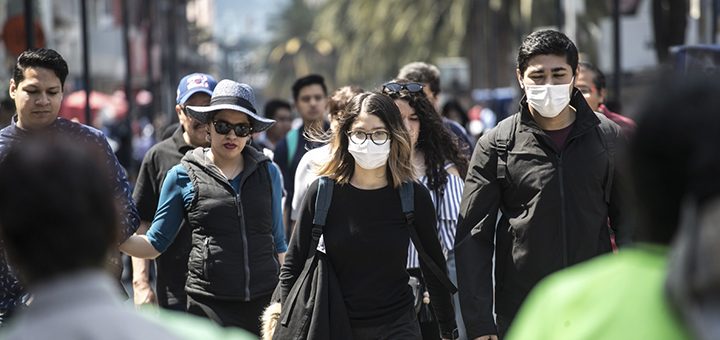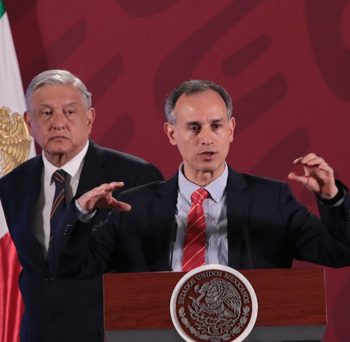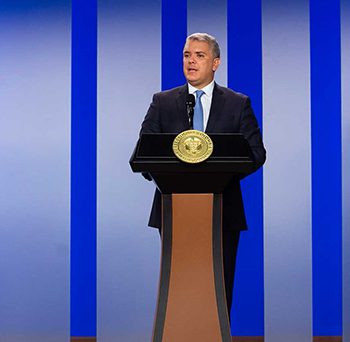
(English) COVID-19 INFO PER COUNTRY 07-04-2020
- Posted by México
- On 08 08UTC abril 08UTC 2020
- 0 Comments
Mexico’s efforts to stem the coronavirus spread continues, the country is currently in Phase 2, in addition to the official sanitary measures now the government is closing public beaches this Holy Week including Acapulco, Ixtapa, Cancun, and Los Cabos. Furthermore, beaches in the south of the country will be close until April 30. At the same time Baja California Sur, a popular US tourist destination, has been ordered to close hotels beginning April 6.
While Mexican airports are still operating, flights are declining and ports for cruise ships and other recreational craft have been suspended. Regarding immigration matters the offices of the National Institute of Migration will be close because of the Holy Week holidays, they will reopen until April 13.
Moreover, the national lodging industry, which includes hotels, lodging platform services and internet travel agencies will stop receiving reservations and will reschedule all the ones they already have during the period of the «Sana Distancia» (Healthy Distancing) policy. All the guidelines that entities and agents of this industry should follow are contained in the “Protocol of care for people of Mexican and foreign nationality during the mandatory quarantine of COVID-19”.
Under this framework the only exceptions are the guest who are coming to Mexico for essential economic activities, in this type of cases the loading industry can receive them without exceeding the limit of maximum occupancy of fifteen percent of their capacity. These travelers will have to present a proof of employment specifying their activity, so that the accommodation center can prove that it is one of the branches defined as essential activities described in the Official Journal of the Federation.
The state secretariat of tourism, in coordination with the national associations of the hotel industry, will prepare a list of lodging centers designed to concentrate all national and foreign guests who present respiratory symptoms, and another for foreign guests without respiratory symptoms so they can await the support of their respective governments for their repatriation procedures if necessary. In any case the accommodation centers will apply preferential rates to foreign nationals with respiratory symptoms.[1]
Additionally, The Ministry of Health recently released a list of places in Mexico where anyone can have a coronavirus test which are:
The Division of Epidemiological Surveillance Laboratories of the IMSS, which made three laboratories available in the entities: Laboratory to Support Epidemiological Surveillance of the Western Research Center (CIBO), Guadalajara, Jalisco, Laboratory to Support Epidemiological Surveillance of the Northwest Biomedical Research Center (CIBIN), Monterrey, Nuevo Leon and Laboratory to Support Epidemiological Surveillance of the High Specialty Medical Unit in Yucatan (UIMY).
If you need to be tested in Mexico City you should go to: The National Institute of Respiratory Diseases (INER), The National Institute of Medical Sciences and Nutrition, The General Hospital of Mexico, The ISSSTE Hospital November 20, The Central Laboratory of Epidemiology, CMN La Raza, of the IMSS and The Federico Gómez Children’s Hospital of Mexico.
Also, there are some private laboratories already approved to make coronavirus tests which are: ABC Medical Center, Observatory Campus, Angeles Interlomas Hospital, Olarte and Akle, Lister Laboratories, Biomedical Laboratories of Merida, LABIOMOLA, Spanish Hospital in Mexico City and Medica Sur Laboratory.
You should take on account that in public hospitals the test is free and in private places, it costs approximately between 3,000 to 4,500 pesos (156 USD to 237 USD).[2]
Costa Rica
Costa Rica is currently in Phase 3 of coronavirus contagion and a series of measures will go into effect during the Holy Week between April 3 and April 12, including a stricter nighttime vehicle restriction in place 5 p.m. to 5 a.m. and two new daytime vehicle restrictions based on license plate numbers. Moreover, specifically between April 8 and April 12, no vehicles are permitted on Costa Rica’s roads and highways, except to go to the grocery store, pharmacy, or health centers. The purpose is to curb the movement of citizens during Holy Week, which is typically Costa Rica’s busiest travel holiday.
In addition, on weekends all public service establishments such as restaurants, pharmacies and supermarkets, with a sanitary permit, must close after 8:00 p.m., although they can continue working under the modality of home service. At the same time all Easter celebrations must be suspended.[3]
President Salas also announced that he is planning to present a bill to Congress for modifying the Health Law and establish fines for people who fail to comply with sanitary orders in the event of a pandemic situation, in this case COVID-19, approximately these sanctions would be around 780 USD.
On April 2nd, Costa Rica’s Directorate General of Migration and Foreign Services clarified that Costa Rica residents who leave the country will not lose their residency status nevertheless everyone should be cautious and only travel if it’s absolutely necessary.[4]
Guatemala
Guatemala is currently in Phase 2 of coronavirus contagion and starting April 5, citizens will not be able to leave the province where they live until April 12 at midnight. However, the heavy transport of food, medicine, health products, and other essential goods, are allowed to cross the provinces and go from one to the other. Additionally, mobilization for recreational trips is prohibited. Activities on beaches, lakes, lagoons, rivers, and any other recreational place are also restricted. The sale and consumption of alcoholic beverages in public spaces was prohibited from Monday, April 6 to Monday, April 13.[5]
Furthermore, the Guatemalan government established that all shops must close from 9 p.m. to 4 a.m. except in the case of pharmacies and essential basic services. Also, president Giammattei reached an agreement with the industrial sector and announced that, for nine days, operations on non-essential goods are suspended to prevent the spread of Covid-19, exempting the food, pharmaceutical, and packaging industries. health, telecommunications, agriculture, transportation, veterinary, banks, fuels, energy, financial institutions and cooperatives.
El Salvador
El Salvador is one of the countries whose rate of contagion due to coronavirus remains very low, for which reason they are still in Phase 1. However, in recent days, cases of COVID -19 in the country have increased due to contact with Salvadorans who traveled to Italy.
El Salvador International Airport has suspended passenger flights until at least April 19th and will only receive air cargo and humanitarian flights in the meantime.
[1] Mexicanist. Mexico coronavirus update: a total of 94 deaths, 2,143 cases of COVID-19 confirmed (+253 in a day). 05 de 04 de 2020. https://www.mexicanist.com/l/coronavirus/ (último acceso: 06 de 04 de 2020).
[2] EXPANSION. Coronavirus en Mexico. 05 de 04 de 2020. https://expansion.mx/mundo/2020/03/31/la-evolucion-del-coronavirus-en-mexico-y-en-el-mundo (último acceso: 06 de 04 de 2020).
[3] Jenn and Matt Practical Travel. Costa Rica and the Coronavirus (COVID-19). 06 de 04 de 2020. https://www.twoweeksincostarica.com/costa-rica-coronavirus/ (último acceso: 06 de 04 de 2020).
[4] Contacto Hoy Edicion Mundial. Costa Rica alcanza 295 casos de COVID-19 y anuncia más rigurosidad en medidas. 02 de 04 de 2020. https://contactohoy.com.mx/costa-rica-alcanza-295-casos-de-covid-19-y-anuncia-mas-rigurosidad-en-medidas/ (último acceso: 06 de 04 de 2020).
[5] AMERICAS SOCIETY COUNCIL OF THE AMERICAS. Where Is the Coronavirus in Latin America? 06 de 04 de 2020. https://www.as-coa.org/articles/where-coronavirus-latin-america (último acceso: 06 de 04 de 2020).




0 Comments